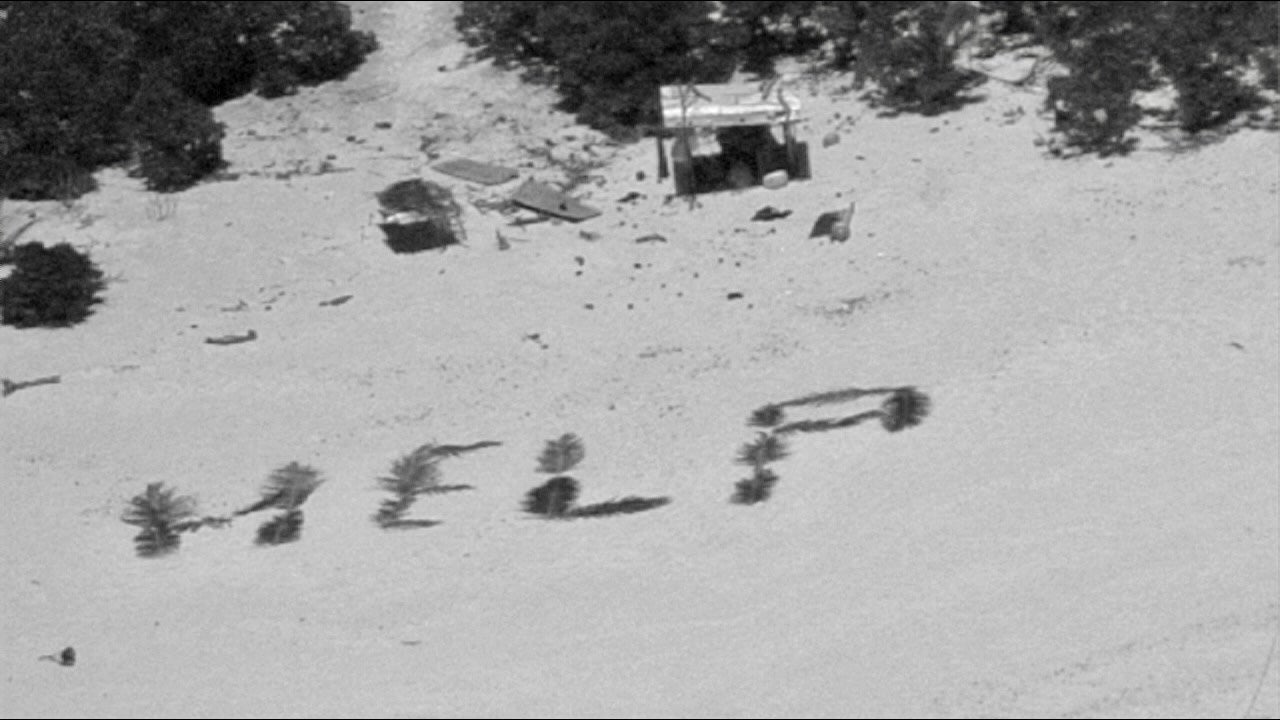Navy crew spots ‘Help’ scrawled on deserted beach by 3 castaways, brave and sure
If not for the courage of the fearless rescuers, the three castaways would still be lost.

Just sit right back and you’ll hear a tale, a tale of a fateful trip that ended with the crew of a U.S. Navy sub-hunting plane spotting a cry for “Help” scrawled on the beach of a remote Pacific island
The Navy plane was searching for three experienced seafarers who had gone missing a week earlier. The three had started from a tropic port, the Polowat Atoll in the Pacific, aboard a tiny ship, a 20-foot open skiff with an outboard motor, according to a Coast Guard news release
More than a week later, the Navy plane spotted the men on Pikelot Atoll, about 100 nautical miles from where their voyage had begun. The three had arranged leaves on the beach to spell ‘help,’ which was spotted by the Navy plane.
“In a remarkable testament to their will to be found, the mariners spelled out ‘HELP’ on the beach using palm leaves, a crucial factor in their discovery,” Coast Guard Lt. Chelsea Garcia said in the news release. “This act of ingenuity was pivotal in guiding rescue efforts directly to their location.”

The Coast Guard initially received a distress call on April 6 from the three mariners’ niece, who said they had not returned. All three men were in their 40s and they had experience navigating the local waterways.
As search efforts began the weather started getting rough. The Navy and Coast Guard initially faced challenges mobilizing aircraft due to ongoing operations, but a Navy P-8 Poseidon from Kadena Air Force Base, Japan, and the Coast Guard Cutter Oliver Henry were eventually dispatched to look for the mariners.
Rescuers searched an area that covered 78,000 nautical miles for the missing mariners.
Subscribe to Task & Purpose today. Get the latest military news and culture in your inbox daily.
On April 7, the crew of the P-8 Poseidon caught sight of the “Help” message that the three men had written with palm tree leaves on Pikelot Atoll, an uninhabited island with no phones, no lights, no motorcars, that’s primitive as can be.
The aircraft dropped survival packages for the mariners and the Oliver Henry was directed to their location.
The following day, a Coast Guard HC-130 from Air Station Barbers Point in Hawaii located the three castaways and dropped them a radio so they could talk to their rescuers. The three men said they were healthy and had food and water. They also said their boat had been damaged and its engine no longer worked.
On April 9, the Oliver Henry arrived at the atoll and rescued the three men, who were taken to Polowat Atoll, roughly 100 nautical miles away.
This is the second time that mariners marooned on Pikelot Atoll have written a distress message on the beach to alert rescuers. In 2020, three other men had to make the best of things and spelled “SOS” on the beach as a signal to Australian and U.S. aircraft.
“This recent operation near Pikelot Atoll hits home the kind of difference we can make,” Lt. Ray Cerrato, the Oliver Henry’s commanding officer, said in a news release. “It’s about more than just performing a duty; it’s about the real human connections we forge and the lives we touch. Every day, I’m reminded of the impact we have and the bonds we build. It’s incredibly rewarding to see the faces of those we’ve helped. Here on Oliver Henry, we’re not just a crew; we’re part of the heartbeat of the Pacific, and I couldn’t be prouder of the work we do.”
In other words, if not for the courage of the fearless rescuers, the mariners would still be lost.
The latest on Task & Purpose
- Former Army base warns of grenades on local trails
- ‘Black Hawk Down’ Ranger veteran awarded Silver Star
- The Air Force’s new $60 million Special Warfare center honors a fallen pararescueman
- Former Air National Guardsman may have defected to Russia
- Marine battalion commander fired for “loss of trust and confidence”
